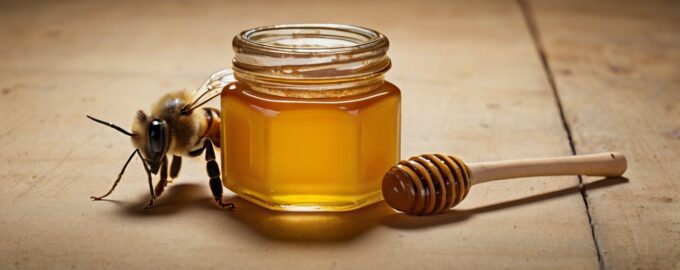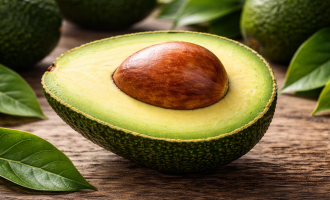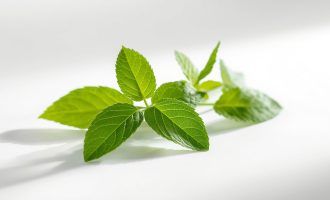Honey is an amazing product that people value not only for its sweet taste but also for its numerous health benefits. However, not all types of honey are equally beneficial. Let’s find out which honey is considered the most useful and why.
First of all, it is worth noting that the benefits of honey largely depend on the plants from which the bees collect nectar. Each type of honey has its own unique composition and, accordingly, its own special properties. Nevertheless, some varieties stand out for their exceptional healing qualities.
Composition of Bee Honey
| Component | Content per 100 g of honey |
|---|---|
| Calories | 304 kcal |
| Protein | 0.3 g |
| Fat | 0 g |
| Carbohydrates | 82.4 g |
| Water | 17.1 g |
| Main Sugars | |
| Fructose | 38.2 g |
| Glucose | 31.3 g |
| Sucrose | 1.3 g |
| Maltose | 7.3 g |
| Oligosaccharides | 4.3 g |
| Minerals (Macroelements) | |
| Potassium (K) | 52 mg |
| Calcium (Ca) | 6 mg |
| Phosphorus (P) | 4 mg |
| Magnesium (Mg) | 2 mg |
| Sodium (Na) | 4 mg |
| Trace Elements | |
| Iron (Fe) | 0.42 mg |
| Zinc (Zn) | 0.22 mg |
| Copper (Cu) | 0.036 mg |
| Manganese (Mn) | 0.08 mg |
| Fluorine (F) | 0.01 mg |
| Iodine (I) | 2 µg |
| Selenium (Se) | 0.8 µg |
| Vitamins | |
| Vitamin B1 (Thiamine) | 0.002 mg |
| Vitamin B2 (Riboflavin) | 0.01 mg |
| Vitamin B3 (Niacin) | 0.12 mg |
| Vitamin B5 (Pantothenic acid) | 0.07 mg |
| Vitamin B6 (Pyridoxine) | 0.024 mg |
| Vitamin B9 (Folic acid) | 2 µg |
| Vitamin C (Ascorbic acid) | 0.5 mg |
| Vitamin K | 0.3 µg |
| Amino Acids | |
| Proline | 56 mg |
| Leucine | 20 mg |
| Lysine | 16 mg |
| Glutamic acid | 33 mg |
| Aspartic acid | 25 mg |
| Alanine | 12 mg |
| Phenylalanine | 10 mg |
| Tyrosine | 9 mg |
| Valine | 8 mg |
| Serine | 7 mg |
| Glycine | 6 mg |
| Organic Acids | |
| Malic acid | 18 mg |
| Citric acid | 12 mg |
| Lactic acid | 8 mg |
| Gluconic acid | 10 mg |
| Other Substances | |
| Polyphenols and flavonoids | up to 150 mg |
| Enzymes (amylase, invertase, glucose oxidase, etc.) | traces |
| Antioxidants | up to 200 mg GAE (gallic acid equivalent) |
Manuka Honey
One of the most beneficial types of honey is Manuka honey. This honey is produced by bees that collect nectar from the Manuka plant, which grows in New Zealand. The uniqueness of this honey lies in its high content of methylglyoxal (MGO) — a compound with powerful antibacterial properties. Manuka honey is effective for treating wounds, burns, and also helps combat various infections, including Helicobacter pylori — a bacterium that causes stomach ulcers.
Buckwheat Honey
Another type of honey worth special attention is buckwheat honey. Dark and richly flavored, it is high in antioxidants, iron, and B vitamins. Buckwheat honey is especially beneficial for strengthening the immune system, improving cardiovascular health, and increasing hemoglobin levels in the blood.
Linden Honey
Linden honey is also considered one of the healthiest varieties. It has strong anti-inflammatory and fever-reducing properties. Linden honey is often recommended for colds, as well as for improving digestive health.
Acacia Honey
Acacia honey, despite its delicate flavor and light color, also has healing properties. It contains a large amount of fructose, which makes it suitable even for people with diabetes (of course, in moderation and after consulting a doctor). This type of honey helps with kidney and liver diseases and also has a calming effect.
Chestnut Honey
Chestnut honey, dark and slightly bitter in taste, is rich in minerals, especially manganese and copper. It is beneficial for improving circulation and strengthening the walls of blood vessels.
However, it is important to remember that the most beneficial honey is natural and fresh. Unfortunately, the market is full of counterfeit honey, which not only lacks benefits but can even be harmful. Therefore, when choosing honey, pay attention to its consistency, aroma, and taste. Natural honey should be thick, aromatic, and free from impurities.
Interestingly, in some cases, the beneficial properties of honey can be enhanced when combined with other foods. For example, honey with cinnamon is a powerful combination for boosting immunity and metabolism. And honey with lemon is a classic remedy for colds.
It is also important to note that heat treatment significantly reduces honey’s beneficial properties. Therefore, for maximum benefit, honey should be consumed raw — not added to hot tea or other hot foods and drinks.
Each type of honey is unique and useful in its own way. When choosing honey, focus not only on taste but also on the properties that meet your health needs. Regular consumption of natural honey can be an excellent addition to a healthy diet, helping to strengthen immunity and improve overall well-being.
However, remember that honey is still a high-calorie product and should be consumed in moderation. People with allergies to bee products or diabetes should consult their doctor before consuming honey.
So, when choosing honey, listen not only to your taste but also to your body’s needs. And may this wonderful gift of nature bring you both pleasure and health!
Frequently Asked Questions about Honey
Which types of honey are considered the healthiest?
Manuka, buckwheat, linden, acacia, and chestnut honey are known for their unique health benefits, including antibacterial, antioxidant, and anti-inflammatory properties.
What makes Manuka honey unique?
Manuka honey contains high levels of methylglyoxal (MGO), giving it strong antibacterial properties useful for wounds, burns, and fighting infections like H. pylori.
Can honey be beneficial for people with diabetes?
Some types, like acacia honey, are high in fructose and have a lower impact on blood sugar, but they should be consumed in moderation and under medical guidance.
Does heating honey reduce its benefits?
Yes, heat can destroy enzymes and reduce antioxidant activity, so honey is most beneficial when consumed raw and not added to hot foods or drinks.
How can honey be combined with other foods for health benefits?
Pairing honey with lemon boosts immunity and helps with colds, while honey with cinnamon can improve metabolism and overall health.
What should I look for when choosing natural honey?
Natural honey should be thick, aromatic, free from impurities, and preferably fresh, as fake or processed honey can lack benefits or even be harmful.
Are there any side effects or precautions with honey?
People with bee product allergies, young children, or certain health conditions should consult a doctor before consuming honey regularly.







